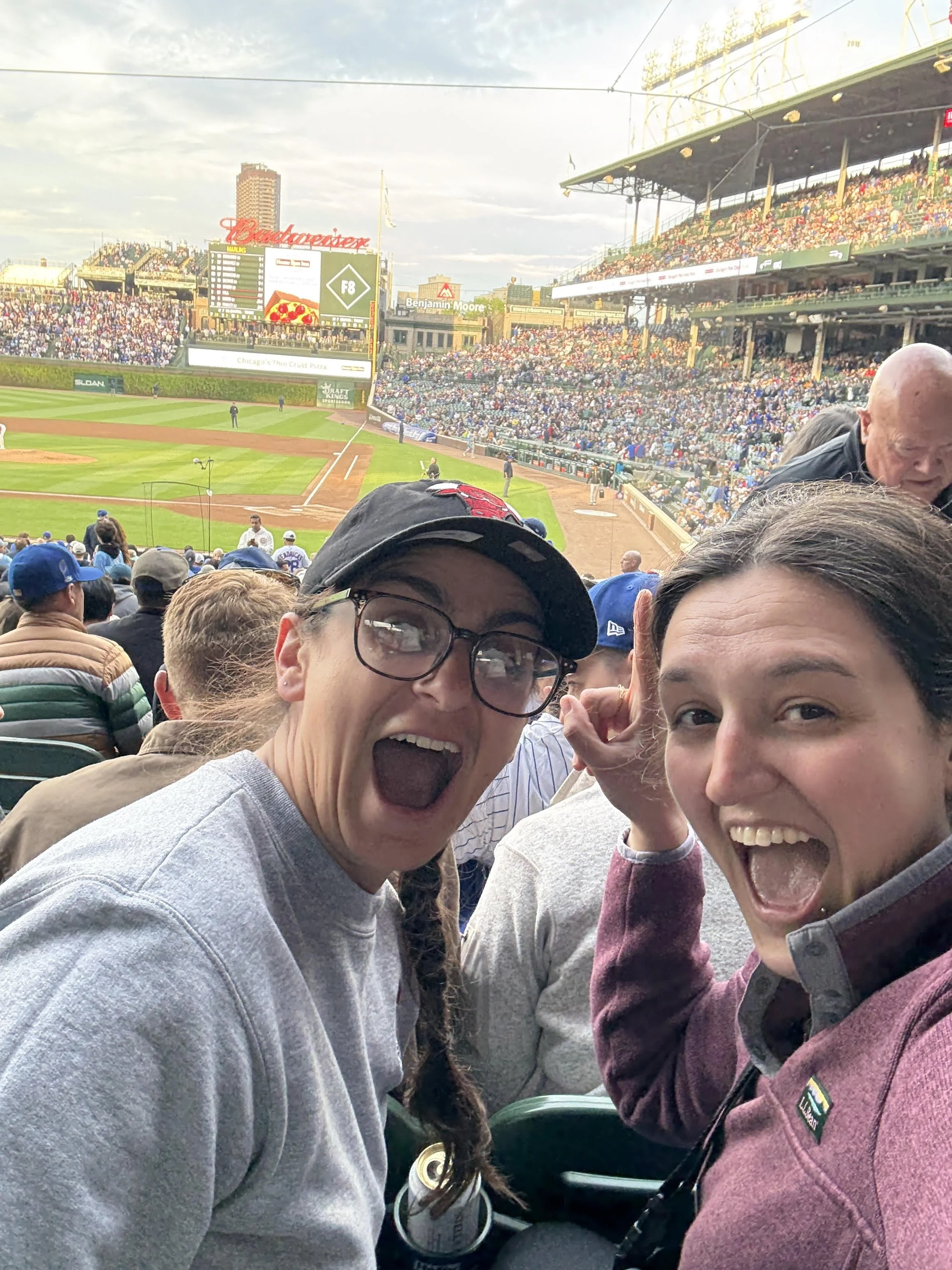Fertility Testing, Part Three: An Interview with Mel Haley
Average Read Time: 6 minutes
In this final blog in my series on fertility testing, I interviewed Mel Haley, a full spectrum doula and fertility awareness educator, about their experience with over the counter (OTC) fertility tests. They have been working in the trying to conceive (TTC) space for awhile, and so I hope you find their insight helpful as you navigate your own journey with at home OTC fertility tests!
Question: What is your history with fertility, cycle tracking, hormones, etc? How did you become interested in this topic to begin with?
I have been cycle tracking my whole adult life, but I took a deep dive in 2019 and started teaching Wyld Bodies, a class about cycle tracking, in 2021. Over the years I’ve experimented with just about every method of symptom tracking - from wearable technology to old fashioned glass thermometers!
My first awareness and interest came in my early twenties when I learned that my hormonal birth control, which I was on to help with painful periods, meant that I wasn’t ovulating. I got off of it after 10 years of use and - from what I can tell - it took about a year for me to start ovulating again. During that time, I talked to other family members to better understand my own medical history. My grandmother and aunt both had hysterectomies, but couldn’t give me a clear answer of why. Another aunt revealed that she didn’t know that cervical mucus was a fertility sign and thought that it was just a lot of extra discharge (she was 50 at the time). I felt so frustrated by the lack of knowledge in my own family and that drives my passion! Knowledge is power.
Question: What made you interested in taking over the counter fertility tests?
I was curious about my overall fertility because I have shorter, low-progesterone cycles. Like I said, I am interested in every sort of tracking method. I love when you can triangulate different symptoms to support theories about your cycle, and every time I try something new I feel like I learn something.
I also support a lot of queer families who are trying to conceive, which is a potentially long and expensive process. I wanted to know if OTC fertility tests might be a helpful tool for my queer clients on the journey to conceive.
Question: What tests have you already tried? What was your experience with them?
I have used regular OPKs and Proov, which is a more comprehensive multi-hormone test. Leila, you’re actually the one that taught me that OPKs are most effective if you take them multiple times near your suspected ovulation window - I was always taught to only use them to test your first morning urine!
Question: You did the Proov test twice. Can you explain more about your experience each time? Did you learn anything new from the second test?
Well, full disclosure, I did the Proov test twice because the first experience was so awful that I reached out and requested a new test. On cycle day 5, my first possible ovulation test result said that I missed my ovulation window for that cycle. Because I know my body and my cycle, I continued to test and managed to catch ovulation. The whole experience was all over the place because I was questioning everything I know about my body and my cycle. Leila, I feel so lucky that I had you to talk to. Even though I know my cycle super well, my confidence was shaken and I needed someone to reassure me (yay, doulas!). I definitely let the app tell me about myself and in retrospect, I know better.
The second time around was better because I treated the results like secondary information rather than primary evidence. I also had a bunch of leftover test strips from my first experience because it was such a shit show, so I was able to test more often than recommended and get a better picture of my whole cycle. Unfortunately, that second cycle was less straightforward so the results were less helpful. I did learn that my hormones were wonky, my estrogen is way too high (hello, environmental factors), and confirmed my low progesterone. So some of the results were helpful.
Question: Would you recommend Proov to your own clients? Why or why not?
I would not just blanket recommend this product to clients, no. First I would want clients to use a resource like Liam Kali’s book Queer Conception to learn about cycle tracking and gain more confidence in their own ability to know their body. Then, maybe I would encourage them to move on the bigger tools like OPKs or a test like Proov. In between my first and second test with Proov, they did update their algorithm so that it is not popping up to say things like “you aren’t fertile, forget it” on day 5. I appreciate that they are learning and adapting. That said, TTC is so vulnerable. Plus add in being queer and not having easy access to sperm. Overall, I say no because I don’t want my clients being their guinea pigs.
Question: Many of these tests, including Proov and Everlywell, are very cis-centered, using gendered language like “women” throughout the testing protocol and results. How have you helped both yourself and clients navigate this? What recommendations would you give to trans and non-binary folks who are interested in testing their hormones?
For folks who are gender expansive, I think that you need community. Signing up for my QTTC group (free) to meet other people in the area, or checking out a resource like Pregnant Together (paid), are all great options. Next, you gather up all the resources that are most inclusive. I already mentioned Liam Kali’s book, and there is also Baby Making for Everybody. I think that queer folks are so used to things not being made for us that we immediately expect to have to start from scratch, but then we end up reinventing the wheel. There are a lot of amazing resources that already exist - start there! Find a queer doula (like me or Leila) to help you navigate and connect to those resources. Ask your local friends and community.
For folks who are not currently using HRT, hormone tests can be a helpful lower cost introduction into fertility. Then again, if you are for sure planning to use a fertility clinic, you can skip these at-home tests because they aren’t going to give you any information you won’t get at a clinic. And of course, if you are on HRT, talk to your endocrinologist or GP. Speaking of which, Birth Roots Community Midwifery is an amazing queer practice that offers HRT, at home IUIs, queer and trans affirming care, and more!
Question: What do you hope for the future of at-home fertility testing? What about the world of fertility overall?
Classic Leila, asking me to dream!! I mean, I want a world where everyone who wants it gets free or low-cost fertility options instead of medals and $5000. I want a world where sperm banks are not for-profit. Even bigger, I want a world where every student is taught about estrogen-dominant cycles and reproduction in HIGH SCHOOL so we aren’t out here trying to figure it out as full grown adults. Easy access to all parts of the reproductive journey, including abortion. I want a world where we care for the earth so that we reduce exposure to estrogen in the environment. I want bodily autonomy and informed consent for all!




